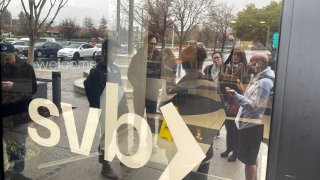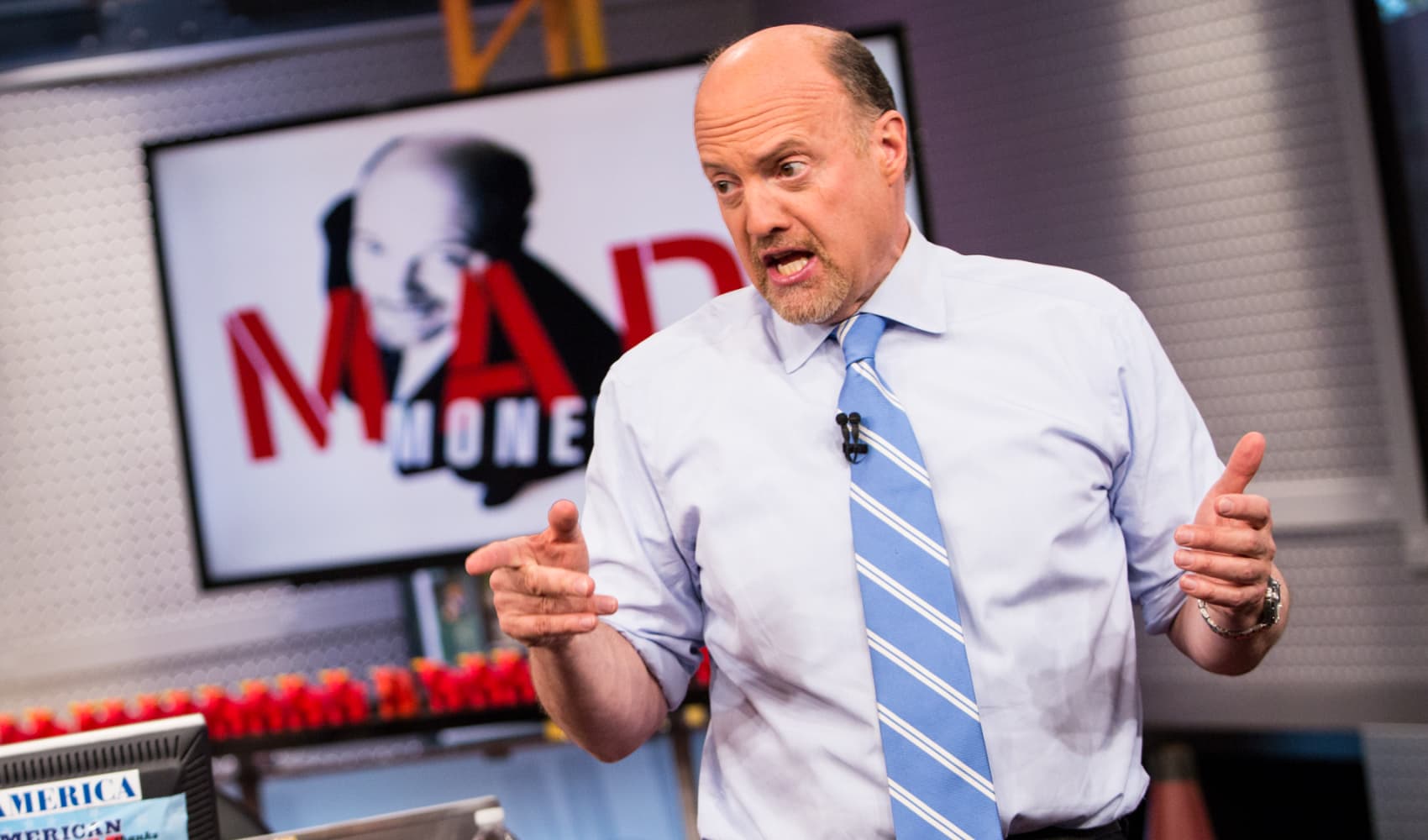
This report is from today's CNBC Daily Open, our new, international markets newsletter. CNBC Daily Open brings investors up to speed on everything they need to know, no matter where they are. Like what you see? You can subscribe here.
Two bank collapses spark a flurry of activity by financial regulators.
What you need to know today
- U.S. financial regulators shut down Silicon Valley Bank on Friday and took control of its deposits.
Get Boston local news, weather forecasts, lifestyle and entertainment stories to your inbox. Sign up for NBC Boston’s newsletters.
- Regulators guaranteed that people can access their deposits in SVB beyond the insured $250,000. The Federal Reserve also created a Bank Term Funding Program to loan money to banks facing liquidity problems.
- It's a relief to tech companies — like Roku, which has 26% of its cash reserves in SVB — and venture capitalists, who implored the government to step in.
- The collapse of SVB is the second-biggest bank collapse in U.S. history.
- Then on Monday morning, regulators closed Signature Bank — one of the main banks to the cryptocurrency industry — citing systemic risks. All deposits will be made whole, according to Federal regulators.
- As for the U.S. jobs number released on Friday — remember that? — it revealed that nonfarm jobs growth in the United States decelerated to 311,000 in February, lower than January's 504,000 but still more than the forecast of 225,000. In signs that the labor market might be cooling, unemployment rate was higher than expected while wage growth slowed.
- U.S. stocks tumbled Friday, hit by shockwaves from SVB's collapse. All major indexes sank at least 1%. The pan-European Stoxx 600 index fell 1.35%, dragged down by a 3.9% loss in bank stocks.
- PRO A major inflation report and any potential fallout from SVB troubles will be what investors are looking out for next week. "It will be a major market mover and set the tone of the market," said Michael Arone, chief investment strategist at State Street Global Advisors.
The bottom line
Money Report
The February jobs report was supposed to be the news event of Friday. Then, a bank crash happened. Hard to beat that in terms of impact. There's a lot to unpack today, so bear with me.
Let's begin with the original protagonist of the day, the jobs report. At first blush, it's not promising for people worried about inflation. The number of jobs created was higher than the Dow Jones estimate. But go beneath the surface, and cracks in the foundation become apparent. Average hourly earnings didn't increase as much as forecast, while unemployment rate rose to 3.6%, above the expectation of 3.4%. In short: Some good news, some bad news, if you're an investor. "There's something for everybody in there," as Liz Ann Sonders, chief investment strategist at Charles Schwab, put it.
On its own, the jobs data was mixed enough for the Federal Reserve to consider hiking interest rates by half a percentage point. But wait — a bank crashed! And not just any regional bank, but Silicon Valley Bank, the go-to for venture-backed tech startups. We can think of SVB as the first (high-profile) victim of higher interest rates.
But the good thing — if there can be a good thing from a bank collapse — is that regulators decided to step in to protect deposits. The move suggests that the Fed recognizes the potential of broader contagion in the economy and may slow its hikes, just so it doesn't take down more banks inadvertently. (Case in point: At the time of this newsletter's publication on Monday morning, financial regulators announced they were shutting down a second bank, the New York-based Signature Bank.)
That might explain why markets fell less sharply on Friday than they had earlier in the week when Fed Chair Jerome Powell suggested higher rates are on the table. On Friday, the Dow Jones Industrial Average lost 1.07%, the S&P 500 fell 1.45% and the Nasdaq Composite shed 1.76%.
Of course, markets might still be digesting the shockwaves before selling off. But I suspect that hopes for lower rates as a result of SVB's collapse might be keeping markets afloat. Likewise, CNBC's Jim Cramer argued that nothing is more deflationary than the collapse of a debt-burdened bank — which might stay the Fed's hand. Indeed, the 2-year Treasury yield — reflective of investors' expectations of interest rates — plunged by 46 basis points in two days, the biggest move since the 2008 financial crisis.
Subscribe here to get this report sent directly to your inbox each morning before markets open.
Correction: This report has been updated to give the correct explanation of the Bank Term Funding Program. An earlier version gave an inaccurate description of it.






